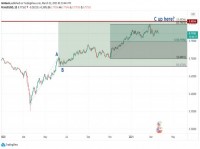|
Opalesque Industry Updates - A new Greenwich Market Pulse reveals that institutional investors around the world would support new regulations on high-frequency trading. However, much of this support appears centered on specific practices such as the use of flash orders and indications of interest that are widely seen as elements of front-running and may inaccurately be lumped into the debate on the merits of high-frequency trading. The survey results show that, when it comes to the broad issue of whether high-frequency trading strategies are placing traditional long-only institutional and retail investors at a disadvantage, institutions are deeply divided. The reason: There is little empirical data to demonstrate whether high-frequency trading benefits the market as a whole by providing liquidity or unfairly increases trading costs for investors. Even some of the most active institutional stock traders cannot agree about whether high-frequency trading helps or hurts institutions, retail investors and the companies with publicly trading stock. Until these questions are answered, regulators should limit any new rules to narrow trading practices that have an obvious and proven negative impact on investors. “More specifically, we would urge the SEC to commission an academic study on the short-term and mid-term effects of high-frequency trading on a company’s stock: opinion is evenly divided as to prospective benefits vs. negatives, with fully half of institutional investors claiming uncertainty,” says Greenwich Associates consultant Jay Bennett.
High Frequency Trading: Friend or Foe? However, these institutions are sharply divided between those that see high-frequency trading practices as malevolent or benign, as adding liquidity to global markets or preying on traditional stock investors. Forty-five percent of participating institutions think high-frequency trading poses a threat to the current market structure, while 36% believe it actually benefits the market and investors by increasing overall liquidity. However, almost 20% of institutions say they do not know enough about high-frequency trading to make a judgment about its overall impact on the market, much less on specific stock prices. “Institutions are even split about whether high-frequency trading helps or hurts their own trading operations and outcomes,” says Jay Bennett. Institutions do agree on one thing: They do not have enough information to make any final judgments about high-frequency trading. As a survey participant from a U.S. asset management company puts it, “Both detractors and those touting the liquidity provision and spread-tightening benefits of high-frequency trading have very little data to back them up.” The market seems to agree: Eighty-seven percent of the institutional investors participating in the survey say that at the present moment, there is no hard data to definitively determine whether high-frequency trading increases or decreases trading costs. “Despite the lack of clarity surrounding high-frequency trading as defined as strategies that seek to take advantage of small market inefficiencies, the Greenwich Market Pulse results suggest to us that institutional investors believe regulatory actions aimed at limiting the use of individual techniques like flash orders and IOIs to maintain a level playing field might be entirely appropriate at this time, as these are seen as unfair advantages,” says Greenwich Associates consultant John Colon. “However, the results also make it clear that additional research on high-frequency trading’s impact on investors and its net effect on the market structure is needed before regulators act to impose any broad new rules.” kb |
Industry Updates
Lack of data on high frequency trading means regulators should move slowly - Greenwich Associates Research
Wednesday, October 21, 2009
|
|





 RSS
RSS







